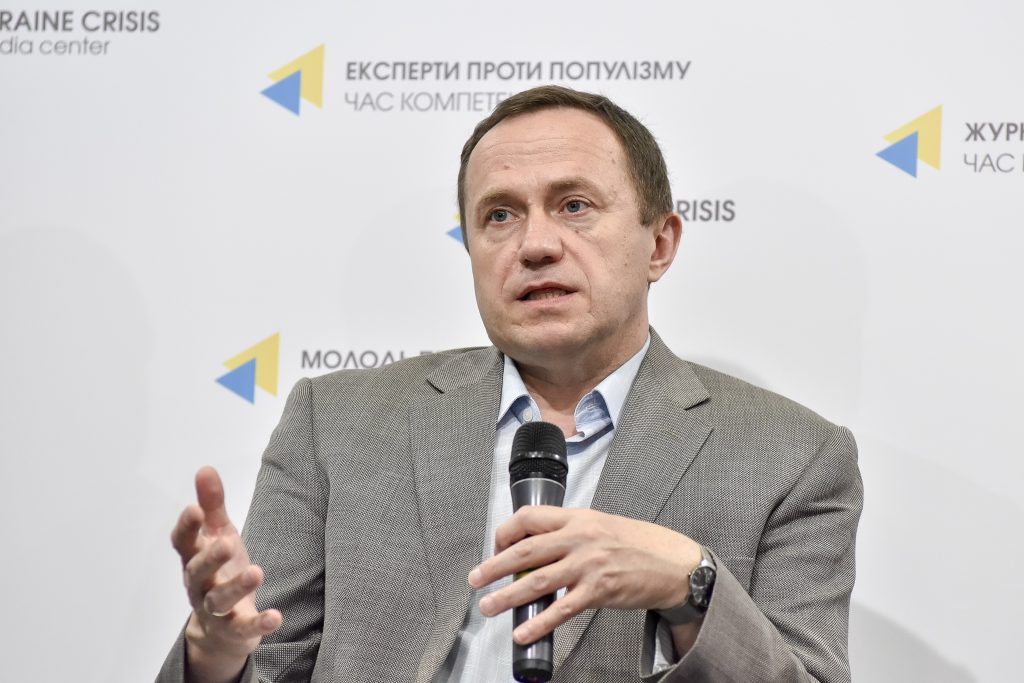Reforms in ten pilot ministries and the Secretariat of the Cabinet of Ministers of Ukraine aim to turn them into governmental bodies, whose priority task is formation of state policy in certain areas and creation of conditions for attracting the best professionals to work and improve the quality of government decisions. This was stated by experts and representatives of ministries at a press briefing held at Ukraine Crisis Media Center.
“We’ve learned that everything depends on the President and the Parliament, but the quality of their decisions crucially depends on the government’s ability to prepare effective projects of these decisions. […] We want to create comfortable ‘think tanks’ for experts, where people who know how to dream and to achieve their dreams on social development will feel comfortable to work,” said Ihor Koliushko, chairman of the Center of Policy and Legal Reform.
Tetiana Kovtun, Deputy State Secretary of the Cabinet of Ministers of Ukraine, reported about a functional monitoring of 10 ministries involved in the implementation of key reforms: pension, healthcare, justice, education, decentralization and public finance. “We already have a model that we see as optimal: each ministry will have a mandate of 5-7 public policies for which a ministry is responsible, and in each of these areas – a corresponding directorate to deal with the development of policies, legislative drafting, assessment of policy and coordination of resources,” she explained. Responsibilities and functions of each ministry will be outlined by a working group made of representatives of these ministries and external experts. The task of the Secretariat of the Cabinet will be to integrate the ministries’ analytics so that their policies were coordinated and met the priorities and objectives of the government.
Ministries must become a kind of analytical centers and project offices of reforms. General directorates in restructured ministries must analyze the situation, identify problems, communicate with stakeholders, provide reasonable suggestions concerning government policy, and therefore prepare legislation necessary for its implementing, said Mr. Koliushko.
By “optimization” we should mean relieving ministries from extra work rather than reducing staff. Thus, they can focus directly on shaping policy in their areas, explained Serhii Soroka, manager of the Reanimation Package of Reforms group “Public Administration Reform”, reforms support group of the Ministry of Regional Development, Construction and Housing and Communal Services of Ukraine. “As a result of functional analysis, we should define functions that are improper or outdated – state property management and provision of services. These functions should be sooner or later transferred from ministries to other executive bodies – agencies, services and inspectorates,” he noted.
After the reform, each of the ministries will have 4-5 Directorates General and 60-70 CEOs with the teams. Specialists in reforming ministries will be elected through competition.
Yevhen Kapinus, State Secretary of the Ministry of Finance of Ukraine, informed that the Ministry of Finance has already identified the main missions and strategic objectives under the Government action plan program till 2020. “I hope that the new Directorates General focusing on shaping policies will allow ministries to be relieved from extra work and improper functions, as well as will provide for better solutions and appropriate reforms. We hope these changes will make attract new people to ministries, as well as raise wages and create conditions for quality work for the people who will pass the competition and remain in the ministries,” noted Yevhen Kapinus. Of special importance is to ensure decent wages to interest the best professionals in working in the ministries. At the same time, noted Serhii Soroka, according to the survey of employees of ministries, wages occupy the fifth place in their priority list, while the recognition of a well-done work – the first place.




